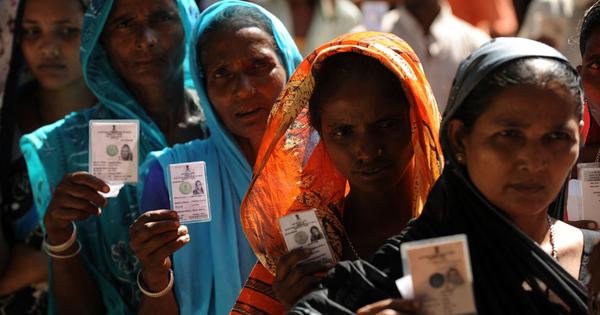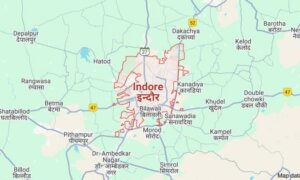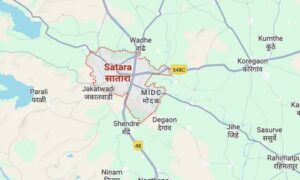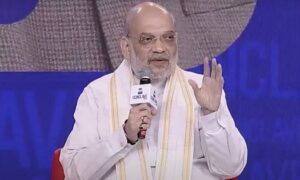
As I was reporting in rural Madhya Pradesh during the 2023 Assembly elections, I saw the wind change.
Voters angered by high unemployment rate and driven by anti-incumbency had declared that they wanted the Bharatiya Janata Party government to be removed. But incredibly right before the polls, the mood shifted.
BJP leader Shivraj Singh Chauhan, the chief minister at the time, announced a monthly payout scheme for women called Ladli Behen, or dear sister. This enabled the Hindutva party to win comfortably.
It is not unusual for political parties in power to announce social welfare schemes such as free public transport or concessions on electricity bills.
But sometimes, there is a harsh price to pay. For instance, Maharashtra’s Majhi Ladki Bahin scheme, similar to Chauhan’s Ladli Behen, is having a crushing impact on other welfare programmes.
The Maharashtra government did not seem to have accounted for the massive financial burden sustaining the scheme would create. Or if it did, it chose to completely ignore this.
Vilas Chaskar, an auto rickshaw driver I met during a reporting trip, had a simple explanation for where the Maharashtra government had gone wrong.
Chaskar said that he plans his monthly budget for food based on the amount he earns.
“You can’t spend more than what you earn,” he said. “The government did exactly that.”
The Ladki Bahin scheme was announced by the Mahayuti alliance, comprising the BJP, Eknath Shinde-led faction of the Shiv Sena and Ajit Pawar’s Nationalist Congress Party group, four months before the Assembly polls in 2024.
The scheme provides a monthly bank transfer of Rs 1,500 to women with a family income less than Rs 2.5 lakh.
Everyone, including men, rushed to register for it. And the government enrolled them seemingly without adequate checks.
By October 2024, there were 2.3 crore beneficiaries of the scheme – half of the registered women voters in Maharashtra.
In November, the Mahayuti won 230 of the 288 seats in the polls.
“Sarkar sabko khush karne gayi,” Chaskar said. “Ye nahi dekha ki paisa kitna lagega.” The government tried to please everyone. It did not consider the money that would be required.
Chaskar’s monthly budget depended on a subsidised meal for Rs 10 under the Maharashtra government’s Shivbhojan scheme.
But since January, funds meant for Shivbhojan are being diverted towards Ladki Bahin, forcing many meal centres to shut.
Chaskar is angry. But the Shivbhojan operators are angrier because their dues have not been paid for more than eight months. Some have been pushed into deep debt.
Earlier this month, Maharashtra’s Food and Civil Supplies Minister Chhagan Bhujbal admitted that Ladki Bahin had hurt other welfare and social security schemes in the state.
“One thing is sure that all departments are facing the fund crunch,” he told reporters.
Bhujbal even indicated that he may have to shut down some schemes.
Shivbhojan is not the only scheme to be hurt. To keep Ladki Bahin afloat, funds meant for schemes under the departments for tribal welfare, social justice and special assistance, and food and civil supplies have been diverted towards the women and child development department.
Earlier this year, the state’s Women and Child Development Minister Aditi Tatkare announced that the government suspected 26 lakh beneficiaries of the Ladki Bahin scheme were ineligible and launched a scrutiny initiative across the state.
So far, the state has confirmed more than 90,000 beneficiaries were indeed ineligible but had received money under the scheme for a year. Among them were 14,000 men. That is Rs 162 crore of taxpayers’ money.
But the state has not taken any action to recover the money.
Municipal and panchayat elections are coming up and the Mahayuti needs the Ladki Bahin scheme more than ever. As a result, the government budgeted Rs 36,000 crore for this scheme for the financial year 2025-’26.
The attempt to woo women voters seems to be the new winning formula across the country.
In the 2024 Lok Sabha polls, the voting percentage among women, at 65.8%, surpassed that of men. The share of women in the electorate had risen to 48.6%.
More women are coming out to vote and political parties are trying to capitalise on this.
So it is not surprising that with Assembly polls in Bihar scheduled for November, all parties are eyeing the state’s women voters.
Rashtriya Janata Dal leader Tejashwi Yadav has promised a Rs 30,000 salary every month to Jeevika workers, who play the role of community mobilisers, and Rs 2,500 monthly aid to women under the Mai Bahin Maan Yojana. The ruling National Democratic Alliance is trying to woo voters with a one-time financial support of Rs 10,000 to build women entrepreneurship.
While the rise of women voters is a cause for celebration, it is also a worrying trend. Free money in their bank accounts may encourage many to sit at home and to choose not to work.
Anita Madale of the Savitri Phule Mahila Bachat Gath self-help group views this as a “bribe”. “The government should instead encourage employment,” she told me.
But others are only too happy to receive the Ladki Bahin handout. Among them is Bharti Gaware, a domestic worker in Mumbai.
When Maharashtra began scrutinising beneficiaries and made e-KYC mandatory, Gaware rushed to her bank and paid the staff a bribe of Rs 200 to get her KYC done quickly. She did not want to miss out on a single instalment.
“I know this scheme will eventually end,” she told me. “But why should we not get the maximum benefit from it?”
Here is a summary of last week’s top stories.
Who can issue a blocking order? The Union government amended the 2021 Information Technology Rules to specify which authorities can seek the removal of content posted online. Now, take-down or blocking directions can be issued only by a court of competent jurisdiction or by a government official not below the rank of joint secretary or director.
For police requests, the officer must be at least a deputy inspector general. Further all such orders must be written and reasoned.
Earlier, any “appropriate government or its agency” could issue such orders.
This came against the backdrop of an ongoing legal dispute involving social media platform X, which had challenged the Centre and state governments in the Karnataka High Court over content takedown orders issued under the IT Act.
X has argued that many of these notices lacked proper reasoning and did not follow due procedure. The High Court dismissed the plea in September, saying social media platforms cannot have unchecked freedom. X is now preparing to appeal against the decision in the Supreme Court.
What Delhi is breathing. The air quality in Delhi and neighbouring cities was in the “very poor” category for at least three days last week. Several areas in the national capital reported worse Air Quality Index of more than 400, falling in the “severe” range.
Pollution spiked around Diwali celebrations on Monday, during which several residents lit firecrackers. On Tuesday, Delhi’s PM2.5 concentration was over 23 times the World Health Organization’s safe limit.
This came after the Supreme Court on October 15 permitted the sale and use of green firecrackers in the Delhi-National Capital Region during Diwali, subject to conditions.
Air quality deteriorates sharply in the winter months in Delhi, some of the reasons being crop residue burning in Punjab and Haryana, the lighting of firecrackers, vehicular pollution, falling temperatures and decreased wind speeds.
Stopped for? Francesca Orsini, a Hindi scholar and professor at London’s School of Oriental and African Studies, was allegedly stopped by the immigration authorities from entering India despite having a valid five-year visa. She had arrived in Delhi from Hong Kong after attending an academic conference in China.
The scholar said that no reason had been provided for the denial. Reports quoted unidentified government officials as saying that Orsini was “regularly violating” visa conditions.
Orsini, an undergraduate in Hindi from Venice University in Italy, studied in New Delhi at the Central Institute of Hindi and Jawaharlal Nehru University.
Prachi Gupta writes about how Orsini’s work illuminates India’s language politics – past and present.
Also on Scroll last week
Follow the Scroll channel on WhatsApp for a curated selection of the news that matters throughout the day, and a round-up of major developments in India and around the world every evening. What you won’t get: spam.
And, if you haven’t already, sign up for our Daily Brief newsletter.
📰 Crime Today News is proudly sponsored by DRYFRUIT & CO – A Brand by eFabby Global LLC
Design & Developed by Yes Mom Hosting






